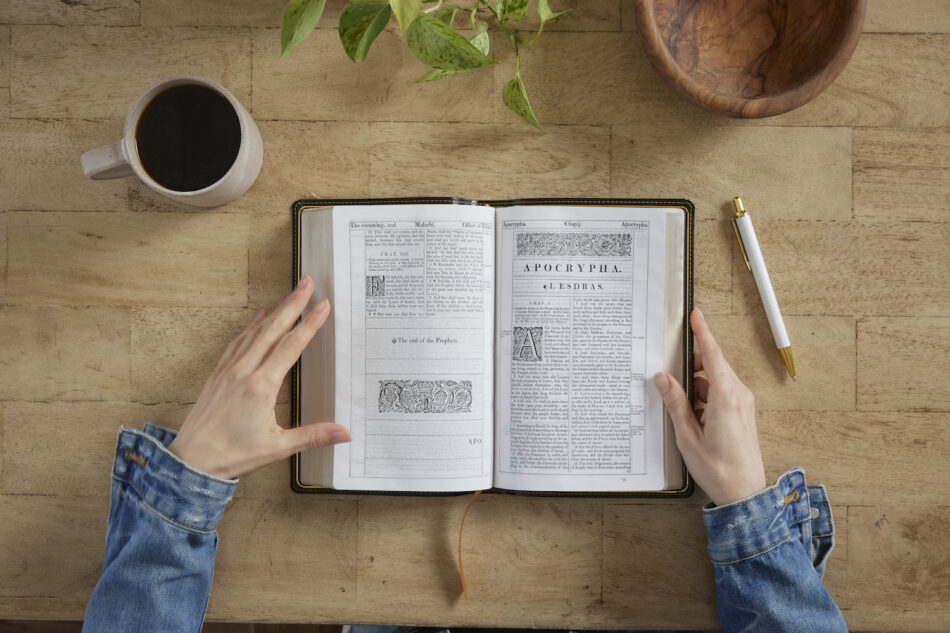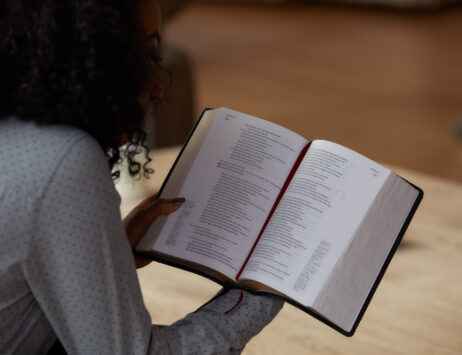The Bible is one book composed of many smaller books; books written by various authors in different times and different places. Have you ever wondered, “Who determined what books would be included in our Bible?” I had never even considered these questions before attending seminary. In some ways, I never knew to ask these questions. But it became clear as I began my seminary studies that I needed to understand the formation of the canon of Scripture. In one of my earliest classes, we were assigned F.F. Bruce’s classic work The Canon of Scripture, in which he opens the first chapter by saying:
“When we speak of the canon of Scripture…it means a list of books contained in Scripture, the list of books recognized as worthy to be included in the sacred writings of a worshipping community.”
As we read through Bruce’s work, I realized that for centuries, the canon of Scripture has been an issue of debate. After all, Protestants, Catholics, and Orthodox all have slightly differing collections of documents in their Bibles. Why then were there specific books Catholics include in their Bibles when Protestants exclude them from their Bibles?
What is the Canon?
Well, the Greek word “kanōn” is found in Galatians 6:16, where Paul writes “all who will behave in accordance with this rule (kanōn), peace and mercy be on them, and on the Israel of God.” The term canon, as Athanasius (AD 352) used it, refers to a “measure,” a “standard,” or “rule.” Today, we would use the language of “the canon of Scripture” to refer to the collection of authoritative writings that serve as a rule, measure, or standard for God’s people.
The Old Testament contains 39 books written from around 1400-430 BC. The 27 books of the New Testament were written between AD 40-100. We believe these books are canon because both testaments were read in the early church, commented on by the early church fathers, and were affirmed as canon at the Council of Laodicea.
Why the Books of the Bible Were Chosen
The books contained in our Bible were considered canonical by the readers and listeners who were contemporaries with the writers and could thus affirm the claims of the writings. In the time of Jesus, the Jews agreed on the Old Testament canon—a list that matches our current Old Testament. Jesus Himself speaks of the Old Testament being composed of “the Law of Moses and the Prophets and the Psalms” (Luke 24:44).
As for the New Testament, the early church recognized canonical books that were written by or tied closely to an apostle, recognized by the churches, and not in contradiction with any other canonical book. By the time Peter wrote his second epistle, the writings of Paul were already received as Scripture (2 Pet. 3:16).
Why Are There More Books in Other Churches?
Now, as stated at the beginning of this article, Roman Catholic and Orthodox Churches have apocryphal books included in their Bibles. We might ask, why weren’t these books included in the Protestant canon? First, these books were written during the intertestamental period, that is, between the Old and New Testaments. Second, these books were not universally accepted as canonical by the early church, as many of them contained factual errors. Third, unlike the Old Testament references in the New Testament, no apocryphal book is ever quoted as Scripture using words like “the Scripture says.”
Underlying all these arguments is an important statement, namely, the church did not “approve” the canon; that is, they did not bestow authority on the texts. Rather, the early church recognized the inherent authority of the biblical texts. As David Dockery said, “We must not think the church determined or defined the books in the church’s canon. The church did not create the canon but received the canon” from God.
I must also add that, as a people of faith we believe that God superintended the construction of, and protected the transmission of, the books that make up our canon of Scripture. To put it simply, because we know a lot about the historical background of the Bible and the church’s historical use of the Bible, I believe we can have tremendous confidence in the state of the biblical canon we have today.






